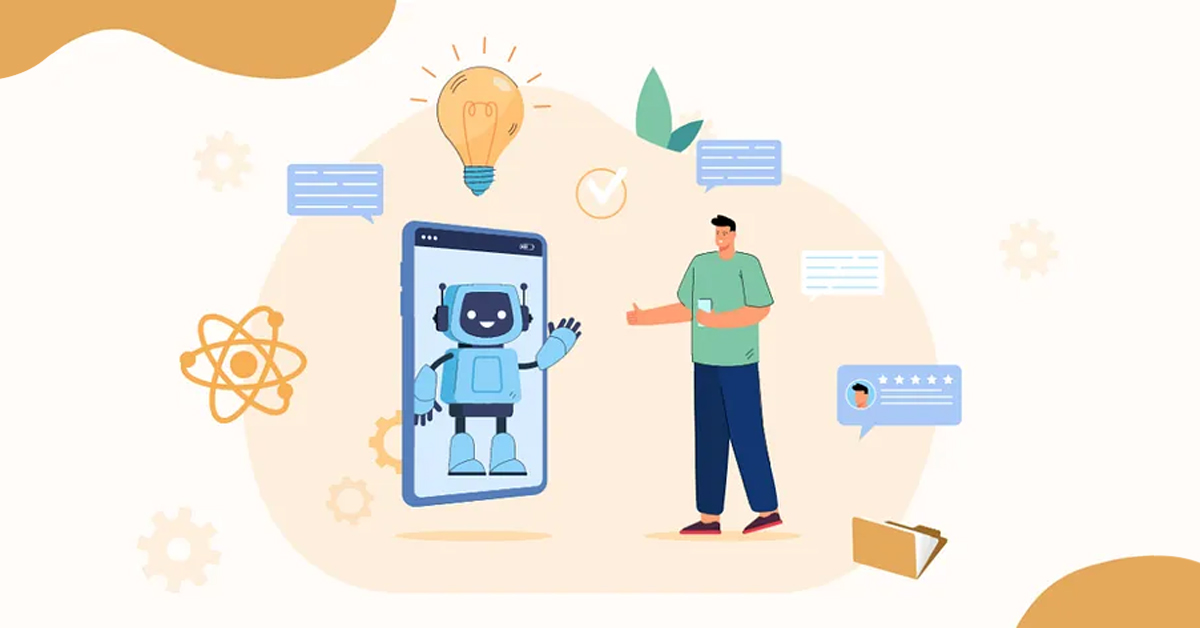
Artificial Intelligence in Marketing: Revolutionizing the Industry
The world of marketing, driven by constant innovation and technological advancements, has always been at the forefront of adopting new tools. Among the most influential developments in recent years is the rise of Artificial Intelligence (AI). This transformative technology isn’t just another tool in a marketer’s kit; it’s an entirely new toolbox. Let’s delve deep into how AI is reshaping the marketing landscape.
Introduction: The Confluence of AI and Marketing
AI, at its essence, entails machines simulating human intelligence processes, such as learning, reasoning, and self-correction. In marketing, this capability promises smarter strategies, deeper insights, and a more personalized user experience.
1. Personalization at Scale: Making Every User Feel Unique
One of AI’s most celebrated applications in marketing is hyper-personalization.
Predictive Analytics: By analyzing users’ past behaviors and preferences, AI can predict future purchases and interests. Brands like Amazon and Netflix utilize this to recommend products or shows.
Dynamic Content: AI can auto-generate content that resonates with individual users, from personalized email subject lines to tailored web content.
2. Chatbots and Virtual Assistants: Always-On Customer Service
AI-driven chatbots are transforming customer interactions:
24/7 Availability: Bots provide round-the-clock support, addressing queries and issues in real-time.
Natural Language Processing (NLP): Advanced bots, equipped with NLP, can understand and respond to user inquiries in natural, conversational tones.
3. Improved Ad Campaigns: Maximum Bang for Your Buck
AI can optimize ad campaigns in ways humans simply can’t replicate:
Programmatic Advertising: AI algorithms analyze users’ online behaviors, ensuring ads are displayed to the most relevant audience, enhancing conversion rates.
Ad Performance Analysis: AI swiftly analyzes which ads perform best, allowing marketers to allocate budgets more effectively.
4. Enhanced Visual Recognition: Beyond Textual Data
Visual recognition, powered by AI, offers a new dimension to marketing strategies:
Image Recognition: Brands can now track their logos and products in images and videos across the web, gauging brand exposure.
Interactive Shopping: Platforms like Pinterest employ visual search tools, allowing users to snap a photo of an item and find similar products.
5. Content Creation: The Machines are Writing
While human creativity remains irreplaceable, AI has made inroads into content generation:
Automated Reports and Articles: Organizations like The Associated Press use AI tools to generate news reports, especially for data-heavy topics.
Content Optimization: AI tools suggest keywords, titles, and content tweaks to enhance SEO and user engagement.
6. Predictive Analysis: Forecasting the Future
Marketers, with AI’s assistance, can now predict future trends and consumer behaviors:
Sales Forecasting: By analyzing historical data, AI can predict future sales trends, helping businesses prepare inventory and sales strategies.
Customer Insights: AI can identify potential high-value customers or those at churn risk, enabling targeted marketing efforts.
7. Voice Search Optimization: Catering to the Spoken Word
As voice searches become more prevalent, AI helps optimize content for this new frontier:
Query Understanding: Voice searches, often longer and more conversational, require AI’s NLP capabilities to decipher and deliver accurate results.
Localized Results: AI-driven voice assistants prioritize local results for queries, changing the way businesses approach local SEO.
Conclusion: The AI-Driven Future of Marketing
While AI’s impact on marketing is undeniable, it doesn’t mean the human touch will become obsolete. Instead, marketers can leverage AI to eliminate mundane tasks, gain deeper insights, and craft more impactful strategies. The fusion of human creativity with machine precision heralds a new era for marketing, promising more meaningful connections with audiences and unparalleled ROI. As we stand on this technological precipice, one thing is clear: AI isn’t just shaping the future of marketing; it’s revolutionizing it.
0



